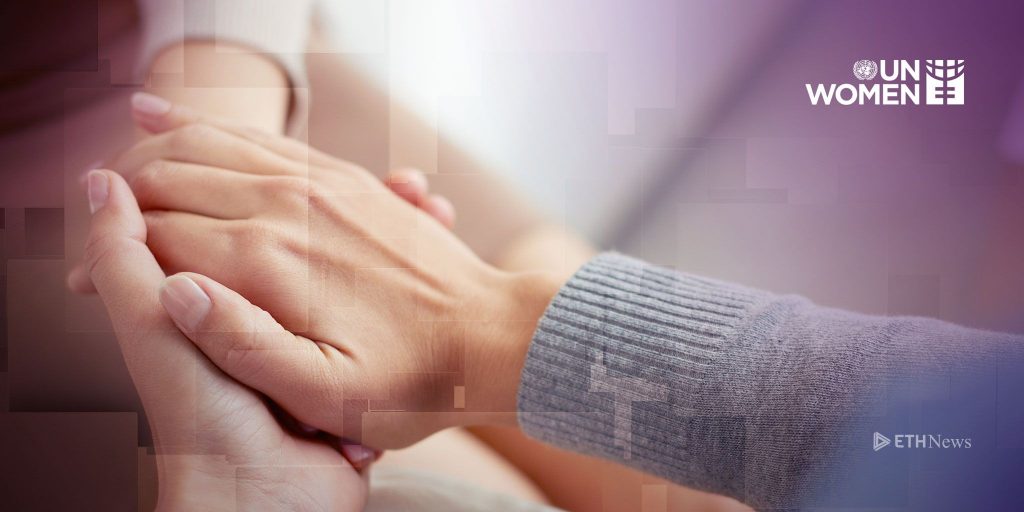When entrepreneur Katrina Donaghy attended a Women in Blockchain meetup in New York City, there were a lot of things that surprised her.
“Well, first of all it was funny hearing my voice, being Australian. I found my voice very different to everybody else’s,” Donaghy told HuffPost Australia.
What Is Blockchain, Anyway?
Essentially, blockchain is an emerging technology that changes the way we organise information. This information, such as transactions and other records of trade are stored on a digital ledger that all authorised participants have access to.

Blockchain is a peer-to-peer trade system that means people can trade digital currencies and other commodities to each other, without relying on a third party to process that transaction. The fact that participants can see the progress of a transaction means they can trust the authenticity of the record.
Both blockchain and Bitcoin have become buzzwords recently, but there is a lot more to blockchain than the Bitcoin. Bitcoin is a cryptocurrency and is the most mature example of blockchain technology. Blockchain has hundreds of possible applications, from green energy to business solutions and humanitarian aid. The Women in Blockchain meetups encourage women to think about how this technology could be applied to their area of expertise.
The third ever Brisbane Women in Blockchain (BWiB) meetup will be held on November 8 and will be run in a Q&A style to make it interactive for the people who attend. People are encouraged to ask questions and seek advice from Donaghy and the meetup’s guest so they might be able to translate this tech into their lives a little better.
Donaghy’s guest for the next BWiB meetup is Dr Jane Thomason, CEO of Abt Associates Australia. Abt Associates is a company that works to improve the social and economic well being of people worldwide and Thomason is now working with blockchain to see how this tech could be used in the humanitarian space.
“I heard about Blockchain from my son, who runs co-working spaces and accelerators and I saw its potential and decided to figure out how blockchain could help us solve developing world problems that we have struggled with for decades,” Thomason told HuffPost Australia.
“Blockchain offers immense potential for identity, energy, financial inclusion, remittances, supply chain, provenance and improving governance. I have made it my mission to accelerate the development and testing and scaling of blockchain and other disruptive technologies to address global problems. I believe emerging economies will be able to leapfrog using this technology.”
With the world changing rapidly, blockchain presents both opportunities and challenges for our society and these need to be considered. Blockchain is a disruptive technology however, this disruption could provide opportunities for both developing countries and the Australian Government.
“The speed at which technologies emerge has increased tremendously… Governments everywhere need to be on top of these emerging technologies and understand their disruptive forces. For developing countries, disruptive change may bring unique opportunities to bypass the legacy issues that advanced economies confront, and help them ‘leapfrog,'” Thomason said.
“Digitisation accelerates economic growth and facilitates job creation. Now around two-thirds of the world’s population have access to a mobile phone – this makes digitisation possible. Blockchain will be an enabler for cities to be more efficient and transparent. Governments must ensure the capabilities for digitisation are in place, and need to collaborate with industry, consumers, and government to foster an ecosystem where the uptake and usage of digital applications grow.”
Thomason told HuffPost Australia that speaking at a BWiB meetup is an exciting chance for her to give back to the blockchain community and guide women on using emerging technologies in their own lives.
“As someone who started my own company and was a working mother, I can be a role model for young women starting out. I am also networked in the global blockchain community and I can help connect them to others. Finally, I am a passionate believer that blockchain can be transformative and I want to inspire others and be part of making it happen,” Thomason said.
Both Thomason and Donaghy also believe that tech is an excellent space for women to develop careers. This provides some of the ethos behind Women in Blockchain — inspiring females speaking to other motivated women to build a conversation around emerging technology.
“I think that tech generally is an ideal area for women — because it allows them flexible working hours and arrangements,” Thomason explained.
“Blockchain is a rapidly emerging technology with new use cases emerging on a weekly basis — that means opportunity. We need to create new stereotypes for women in tech who are smart, managing awesome tech and managing motherhood.”
“I’m just interested in having conversation with my community here in Brisbane, but I am very fortunate because I am connected to a lot of the other women in Australia who are also founders or co-founders or immersed in blockchain technology in this country,” Katrina Donaghy said.
“So, if we’re able to understand the technology then maybe we’re able to start having conversations with our leaders or people with decision making to start to question the status quo and start thinking about emerging technology to disrupt or even start thinking about new economies of the future.”

